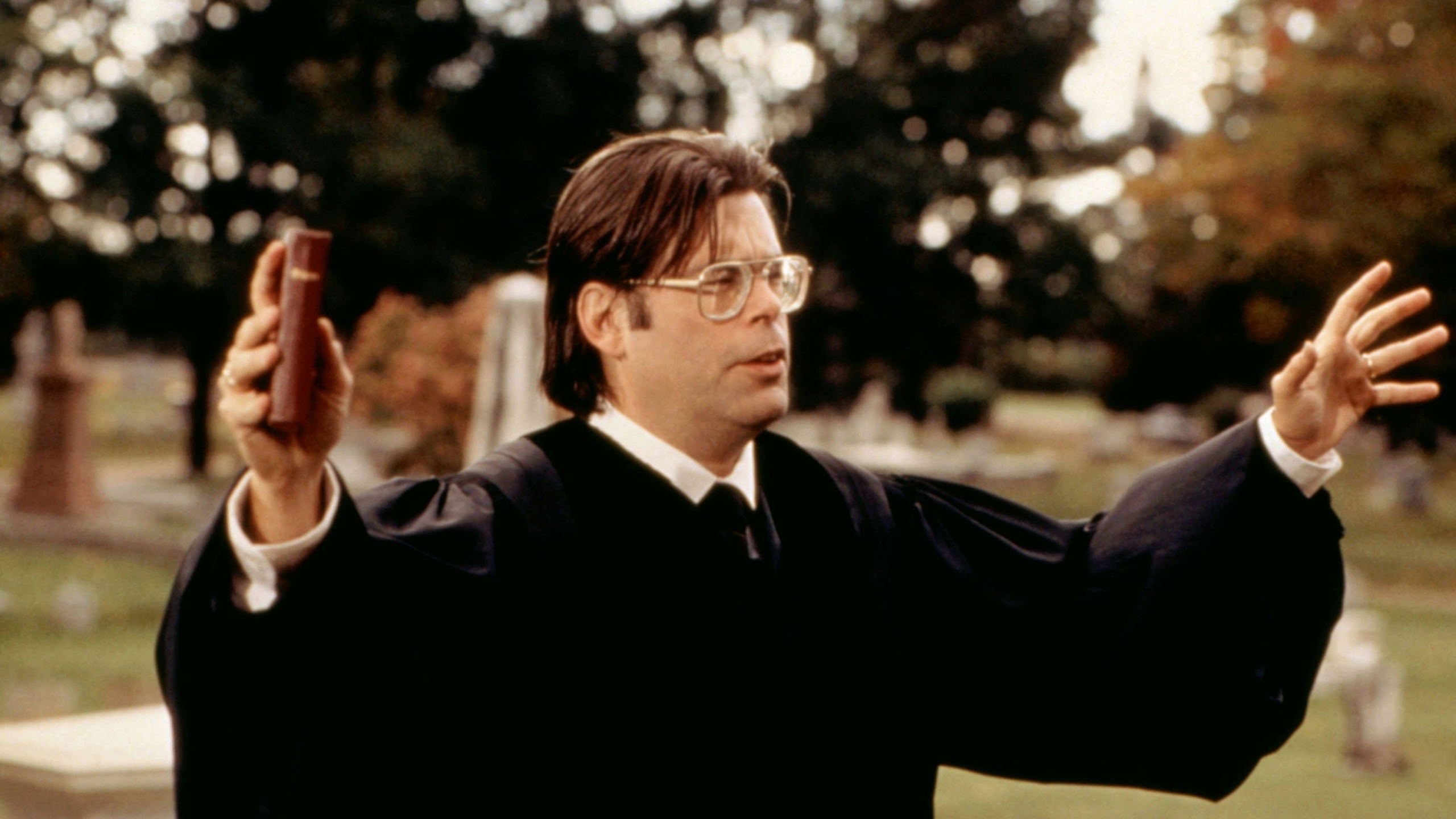Critic, podcaster, and film journalist Scott Wampler passed away on May 31 due to unknown causes, as shared by his “Kingcast” co-host Eric Vespe on Friday.
But, as sad as his passing is, we expect that Scott Wampler wouldn’t want tears. He would want you screaming. He would want you wailing in agony, convulsing in terror, blood shooting out of every orifice. He would want you laughing until you cried, thinking in ways that didn’t make your brain hurt, and engaging with one another cause he knew that it’s the only way to make sense of this silly, scary world.
He spent his professional life making genre entertainment, particularly horror, accessible to the masses and sharing his passion with not just outsized glee, but downright fervor. He loved movies and television that made you squirm and he made us love them too. He found beauty and art in the disgusting and unseemly and approached what some may view as trash with care and admiration.
Wampler was a lifelong Texan who was born in Plano, raised in Dallas, and spent most of his adult life in Austin. Though his age is up for some debate, he would probably want us all to believe he was 130, but just constantly appeared 25 — a tragic consequence of drinking water from a cursed well.
During his career as an entertainment journalist, he wrote for many publications, including Alamo Drafthouse’s now-defunct website and magazine Birth.Movies.Death, where he served as managing editor. For those who haven’t read his work for BMD, stop and take a look at this interview with Rian Johnson for the release of “Knives Out” in 2019. It’s not only full of insight into Johnson’s influences but indicative of the kind of hilariously accessible writing style Wampler was so well known for.
Wampler would go on to write for other outlets, including Collider, before ultimately landing at the horror fan magazine Fangoria. It was there he started the Stephen King fan podcast “The Kingcast” with co-host Eric Vespe, a show that featured guests such as Kumail Nanjiani, Carla Gugino, Guillermo Del Toro, Patton Oswalt, and many others. Fans of the podcast know that Wampler’s output bordered on excessive, just as he liked it, and that his ability to converse — to pose questions both ridiculous and thought-provoking — was second to none.
His friend and collaborator, Vespe said:
In addition to his podcast duties and reportage, Wampler also led Fangoria’s news team. He knew the best work came from staying true to one’s voice, and he’s been a part of countless writers finding theirs.
Perhaps his greatest influence, though, was on social media. A Wampler tweet often felt like a gift. A silly picture. An inappropriate quip. Whatever form it took, it always put a smile on our faces. Even Wampler himself said in the past how he wished for his funeral to take place on X, formerly known as Twitter.
Taking it a step further, he even listed instructions at one point.
Honoring his wishes, last night’s X feed was ablaze with tributes to Wampler, ranging from touching to gut-bustingly funny.
Death was probably not something Scott Wampler was afraid of. It fascinated and delighted him, and often pushed him to go further. In this way, Scott Wampler will never die. His words, humor, and joyous voice will live on with us forever. For as much pleasure as he found in the hair-raising, he also made this world a nicer place to live in.






